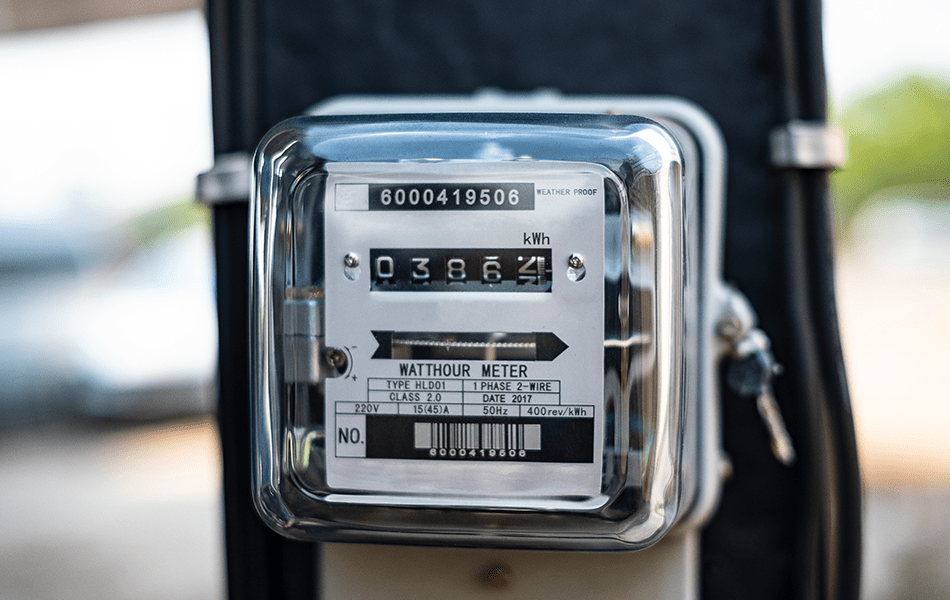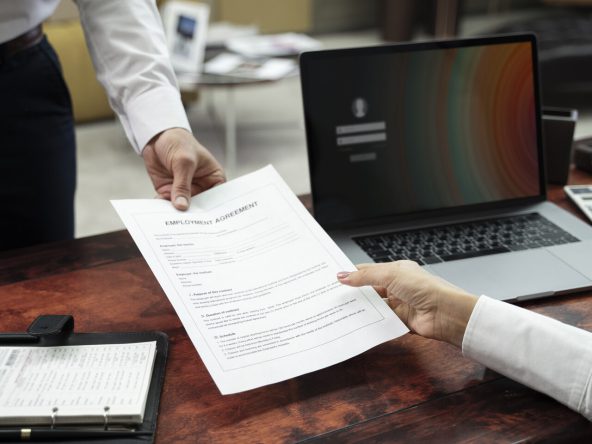Running a home can cost a lot, with the electricity bill often taking up a significant portion of the monthly expenses. However, there are many ways to reduce your energy consumption in your everyday life and lower your power bill. One of the most cost effective ways is to invest in energy saving devices and turn your place into a smart home for not only the environment, but for your wallet as well.
We’ve all heard of the usual practices to reduce energy consumption. Make sure to unplug your electronics when not in use, avoid excessive use of energy intensive appliances like air conditioning, regularly check and replace LED lights, consider renewable energy sources such as solar panels, etc. While these are all well and good, you can still take the energy saving capabilities of your house to the next level.
Energy efficient appliances are devices or systems designed to use less electricity while providing the same or even better performance compared to their traditional counterparts. These smart devices come in different forms, including LED light bulbs, a smart thermostat system, smart plug, and an inverter air conditioner system, among others. By using these devices, you can significantly reduce your energy usage, see fewer zeroes in your electric bill, and reduce your carbon footprint.
We’ll take a closer look at some of the best energy-saving essentials for your home, including smart devices and other maintenance tips that can help you lower your electricity bill, save money, and contribute to a greener planet. Whether you’re looking to push back on electricity consumption, reduce daily living costs, or both, implementing energy-saving measures in your house is a smart and worthwhile investment.
Why save energy in the first place?
Conserving energy is important for several reasons. Firstly, it helps to reduce our carbon footprint and mitigate the effects of climate change. By using less energy, namely electricity, we can reduce the amount of greenhouse gas emissions that are released into the atmosphere, which is a major contributor to global warming.
Secondly, conserving energy can also help to reduce our dependence on fossil fuels, which are finite resources. As these resources become increasingly scarce, their price will continue to rise, making it more expensive for us to power our homes and businesses. By conserving energy, we can reduce our overall energy consumption costs and lessen our dependence on these finite resources.
And last but most definitely not least, conserving energy can also help us to save money on our electricity bill. By using energy-efficient appliances and adopting energy-saving habits, we can significantly reduce our monthly energy bills and expenses. This can be especially beneficial for low-income families or those on a tight budget.
It’s worth saying that not all houses are able to reduce power consumption. Especially now with the increase in popularity of work from home setups and the effects of warmer weather, electricity usage is inevitable. Some of us live our lives through our electronics already. However, that doesn’t mean that it’s no longer possible to be energy efficient.
The must have energy efficient appliances for your home
Whether you are trying to power through the heat of warmer months, finding ways to improve cooking time, or cooling off after a busy day, it is never a bad idea to be energy efficient when it comes to your appliances and electronics. Wouldn’t it be nice to enjoy the comfort of technology without looking over your shoulder in fear of the energy bill?
Most electricity usage happens when you’re not even fully aware of it. Charging your devices, using the electric fan, turning on the lights in the room, making a cup of coffee, taking a bath, having a rest, etc. Whatever it is you do, you just simply can’t avoid using electricity. The next best thing you can do to save energy is to improve your home’s energy efficiency.
Here are some examples of energy saver appliances that are ideal to have in your home:
Smart Power Strips
Smart power strips are designed to reduce standby power consumption by automatically turning off devices that are not in use, such as televisions, computers, and gaming consoles. Let’s all admit it, we don’t always get to follow the “unplug your device when not in use” rule. Not only will smart power strips do the job for you, they can also help to reduce the risk of electrical fires, prevent overheating, and the possibility of electrical shorts from your power supply.
Energy-Efficient Ceiling Fans
Energy-efficient ceiling fans use less energy than traditional models, which is a great form of an energy saver compared to blasting air conditioners all day long while also improving the comfort of your home. Simply ask the appliance store for these models as they usually tend to be confused with normal fans by your average consumer. They also help to circulate air throughout a room, reducing the need for more elaborate cooling systems.
Low-Flow Showerheads
Low-flow showerheads use less water than traditional models, which can help you save on your water bill cost by reducing your water consumption. They can also help to improve the efficiency of your water heater since you’re using less hot water during each shower. When showering, you don’t need high pressure. It’s unnecessary, wasteful, and tends to be uncomfortable even. There’s a lot of water that gets wasted when a strong showerhead is in use. Switch to a low-flow model and see the difference it can make to both your savings and your shower time comfort.
Energy-Efficient LED Light Bulbs
Relying on natural light is all and well and good but sometimes you really just need to flip a switch. In this case, switch all your light bulbs to energy-efficient LED lights. These use less energy than traditional incandescent bulbs, and they last longer too. They are up to 80% more efficient, which means that they use only 20% of the energy that incandescent bulbs use to produce the same amount of light. That’s one of the easiest deals you can take. Save your time, money, and energy by avoiding regular trips to the store for maintenance and install LED bulbs today. It’ll last so long that you’ll forget it even needs replacement.
Programmable Thermostat
Programmable thermostats allow you to set your heating and cooling systems to operate at specific times, which can help you save energy when you’re away from home or sleeping. There are some temperature devices that conserve energy better when they are on standby mode instead of being regularly turned on and off. Programmable thermostats are easy to use and require little to no effort on your part. Once you’ve programmed the thermostat, it will automatically adjust the temperature according to your schedule, so you don’t have to worry about manually adjusting it yourself.
Energy-efficient windows
What’s perfect to pair with a smart thermostat are energy-efficient windows, such as those with double or triple panes and low e-coatings. These are designed to minimize the transfer of heat between the inside and outside of your home. This means that they can help to reduce the amount of energy needed to heat or cool your home by adding insulation. You not only get to improve the air quality of your house, but you can also save it from the risk of condensation which may cause moisture buildup and mold growth.
Make sure that your electricity bill is optimized
Becoming an efficient energy saver means that you make sure your electricity bills don’t contain unnecessary costs. Save energy, your bank account, and the environment with these tips:
Monitor your energy consumption
Keep track of your electricity consumption by monitoring your electric meter or using an energy monitoring device. This will give you a better understanding of how much energy you are using and where you can make improvements. This will help you pinpoint which times during the day when your household is the most active and which devices are consuming the most electricity.
Conduct an energy audit
An energy audit can help you identify areas where your home may be using more energy than necessary. This may include checking for air leaks, upgrading your electronics, or installing an energy saving device wherever necessary.
Consider solar panels
Consider installing solar panels to generate your own energy and reduce your reliance on traditional power sources. These are especially useful in a highly tropical country like the Philippines. The sunnier it is in the morning, the more extra energy you can use for your devices. The major drawback of this option is the high cost it requires. Solar panels are very expensive and quite difficult to install. But, once you have it, you’ll be enjoying a power supply that relies on renewable energy to comfortably keep the lights on long after the sun goes down.
The benefits of having a power efficient home
Lower electricity bills
One of the most significant benefits of having a house that’s efficient with its energy consumption is that it can help you save money on your energy bills. We’ve been saying this multiple times already in this article because it’s the truest and mostly likely, the most enticing for the majority of homeowners. Power efficient homes use less energy to heat, cool, and power devices, resulting in lower monthly energy bills.
Reduced carbon footprint
Power efficient homes help to reduce the amount of energy needed to power your home, which in turn reduces your carbon footprint. By using less energy, you can help to reduce greenhouse gas emissions, which contribute to climate change.
Improved home comfort
Power efficient homes are designed to maintain more consistent temperatures throughout the year, reducing drafts and hot or cold spots. This can make your home more comfortable and enjoyable to live in. Cooling off in the heat of the afternoon is equally as important as keeping warm in the cold breeze of the night.
Increased home value
Energy-efficient homes are often valued more highly than homes that are not energy-efficient. This is because energy-efficient homes have lower operating costs and are considered more environmentally friendly.
Healthier indoor air quality
Energy-efficient homes are often equipped with air filtration systems that can help to improve indoor air quality by removing pollutants and allergens from the air. This can be especially beneficial for people with allergies or respiratory issues.
By building a sustainable and cost-efficient home, you are not only benefiting yourself financially, but you are also doing your part to reduce your impact on the environment. A sustainable home is designed to use fewer resources, produce less waste, and have a smaller carbon footprint than a traditional home.
In addition to the environmental benefits, building a sustainable home can also have a positive impact on your physical health. A well-designed sustainable home can provide better indoor air quality, reduce exposure to harmful chemicals and pollutants, and promote natural light and ventilation.
Creating a sustainable and cost-efficient home is not just about saving money on your energy bills. It is about creating a healthier, more comfortable living environment for yourself and your family, while also doing your part to protect the planet for future generations. Here at Asterra, our goal is to provide you with living spaces that not only fit your needs but enhance your living conditions as well. Get in contact with us and find your dream sustainable home today.
Written by Renzo Guevara





